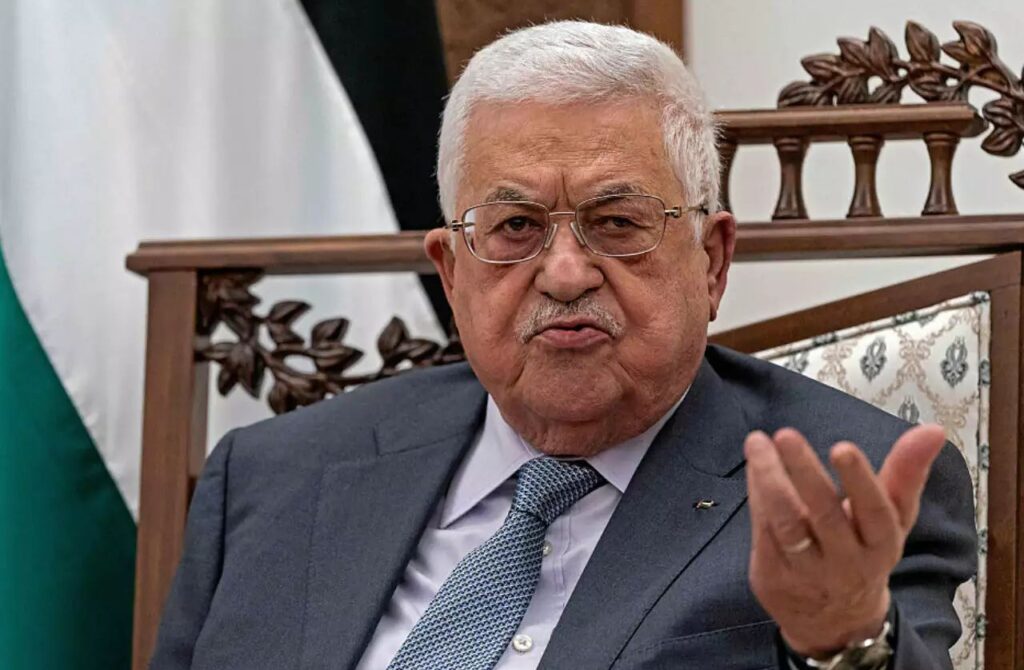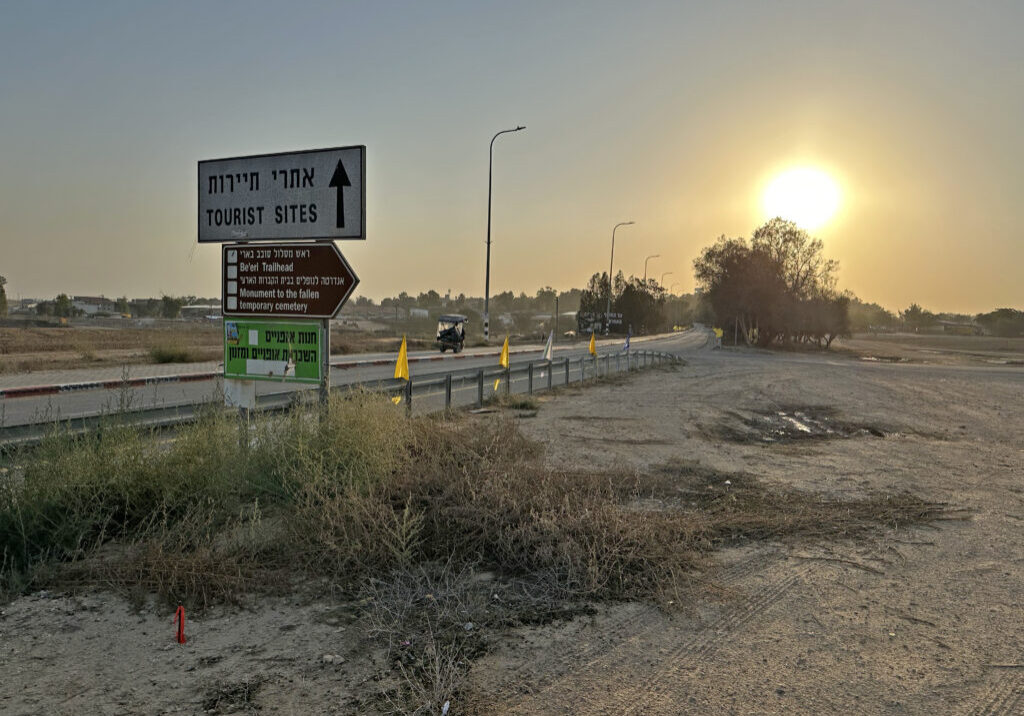Australia/Israel Review
Does the PA even want to govern Gaza?
May 31, 2024 | Khaled Abu Toameh

While some in Israel and the United States are fixated on the question of who will govern the Gaza Strip after the current war, many Palestinians, including the Palestinian Authority (PA), seem less concerned about what will happen to the coastal enclave once Hamas is removed from power.
Although the PA has publicly indicated its desire to return to the Gaza Strip, Palestinian officials in Ramallah say they know this could not happen so long as Hamas’ military capabilities have not been completely destroyed.
PA President Mahmoud Abbas is not thinking about returning to the Gaza Strip, the officials say. His top concern right now is ensuring that Hamas does not win on the battlefield or in the arena of public opinion.
All he can do on the battlefield front is silently hope that Israel vanquishes Hamas and puts an end to the terrorist organisation’s rule over the Gaza Strip.
The PA President is apparently not happy with all the attention that Hamas has been getting since October 7, 2023. He is also upset that since the attack, Hamas has become more popular among Palestinians as well as other Arabs and Muslims. Abbas, in addition, is worried about the fact that Hamas leaders continue to be accepted by many in the international community as legitimate actors in the Palestinian arena.
At meetings of the Palestinian leadership in Ramallah, Abbas has avoided bringing up the issue of returning to the Gaza Strip. He is aware that this a very delicate subject and that Hamas and his political enemies could use anything he says to label him as an Israeli collaborator.
Since the October 7 massacre, Abbas has been cautious not to challenge Hamas directly. However, he has sharply criticised Hamas – not for the heinous crimes it committed, but for providing Israel with a pretext to invade the Gaza Strip. Abbas knows quite well that if he criticises Hamas, especially when it is at war with Israel, he will lose favour with many Palestinians.
At the May 16 33rd Arab League Summit in Manama, Bahrain, Abbas accused Hamas of giving Israel pretexts and justifications for waging war against the Gaza Strip, but he stopped short of denouncing the crimes committed by Hamas terrorists against Israelis. “The military action that Hamas carried out, at its own decision, on that day, October 7, gave Israel even more excuses and reasons to attack in the Gaza Strip, an attack it has continued with full force, with murder, destruction, and uprooting,” Abbas said.
The Day After
According to the Palestinian officials, Abbas and the PA leadership do not have a plan for the day after the war.
The new PA Government, led by Prime Minister Mohammad Mustafa, has still not come up with a strategy to expand its authority to include the Gaza Strip, primarily because Hamas objects to Abbas’ “unilateral” decision to name a prime minister without first consulting with the terrorist group.
It is, therefore, unlikely that Mustafa’s Government will take up its duties in the Gaza Strip anytime soon, given the fact that Hamas remains in control of many parts of the coastal enclave. Over the past few weeks, Mustafa has been busy trying to find a solution to the PA’s financial crisis. His top priority is to pay full salaries to PA employees – and not return to Gaza.
As part of its effort to prevent the return of Abbas loyalists, Hamas militiamen have been keeping an eye on the whereabouts and activities of Palestinians in the Gaza Strip who are recognised to be associated with the PA and its ruling Fatah faction.
Hamas security personnel dressed in civilian clothes are patrolling the streets of several Gaza communities, occasionally stopping individuals and requesting to verify their personal documentation.
In April, Hamas announced that its men detained several PA intelligence officers who had “infiltrated” the Gaza Strip while posing as humanitarian assistance workers. Hamas claimed that the officers were on a covert mission organised and supervised by Majed Faraj, commander of the Palestinian General Intelligence Service (GIS), in coordination with Israel and some Arab countries, presumably Egypt, the United Arab Emirates, Saudi Arabia, and Jordan.
In the past few months, Hamas has issued numerous warnings declaring that it will not allow any foreign party to be present in Gaza. The warning was issued in reaction to information circulating about the possible deployment of an Arab peacekeeping force there. The warning was also directed against Abbas and his close advisers, including Faraj and Hussein al-Sheikh, Secretary-General of the PLO Executive Committee, who is touted as a potential successor to the 88-year-old Palestinian Rais (“president”).
There is hardly any meaningful debate among the Palestinians when it comes to who should lead the Gaza Strip if Hamas is overthrown.
But many Palestinians are attentively monitoring reports in the Israeli and foreign media concerning the controversy surrounding the PA’s return to Gaza. The majority of the information they receive on this matter is sourced from Israeli and foreign journalists, with Palestinian officials, political analysts, and commentators rarely discussing the topic in public.
In the Gaza Strip, many Palestinians are frequently unwilling and afraid to bring up the subject, at least not in public. They are aware that despite the significant losses Hamas has sustained during the war, it still maintains many eyes and ears throughout the Strip.
In the West Bank, many Palestinians do not seem to care about who would rule Gaza after the war. The two main concerns that the majority of the West Bank Palestinians have these days are whether the PA will pay its employees fully or partially and whether or not Israel will ever permit Palestinians (from the West Bank) to work in Israel again. More than 100,000 Palestinians from the West Bank had permits to enter Israel for commercial and work purposes prior to Hamas October 7 attack.
The International Criminal Court
In the absence of a plan and a genuine intention to return to the Gaza Strip, Abbas and the PA leadership have intensified their diplomatic war against Israel in the international arena, exemplified by the International Criminal Court’s Prosecutor Karim Khan requesting arrest warrants from the Court’s judges for Prime Minister Binyamin Netanyahu and Defence Minister Yoav Gallant.
The offensive also involves renewing the Palestinians’ application for full United Nations membership, gaining more nations to recognise a Palestinian state, and convincing numerous governments and international organisations across the globe to boycott and punish Israel.
Instead of preparing the PA for regaining control of the Gaza Strip, Abbas has opted to focus his efforts on delegitimising and isolating Israel and achieving symbolic victories, including persuading more countries to recognise a Palestinian state. His main goal is to show the Palestinians that the PA remains as relevant as ever. His message to the Palestinians: “While Hamas is fighting Israel on the streets of the Gaza Strip, I’m also waging another type of war against Israel in the international arena. My war is no less painful to Israel than the Hamas attacks against Israel.”
Abbas is hoping that his diplomatic offensive will help him regain legitimacy and the confidence of Palestinians, many of whom, according to public opinion polls, prefer Hamas to his corrupt and incompetent PA. For now, he would rather remain in Ramallah, continuing his diplomatic warfare against Israel and efforts to win recognition of a Palestinian state, than return to the Gaza Strip and face a potential bloodbath, courtesy of Hamas.
Khaled Abu Toameh is an award-winning Israeli Arab journalist, lecturer, and documentary filmmaker specialising in Palestinian affairs. A Senior Distinguished Fellow at the Gatestone Institute and a Fellow of the Jerusalem Centre for Public Affairs, he has also worked as a senior producer for NBC in the Middle East and has reported on events in the West Bank and Gaza for several media outlets. © Jerusalem Centre for Public Affairs (JCPA.org), reprinted by permission, all rights reserved.
Tags: Fatah, Gaza, Hamas, Mahmoud Abbas, Palestinian Authority






